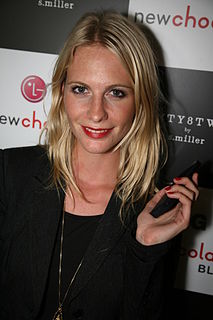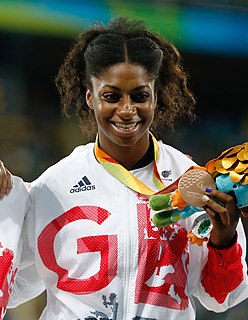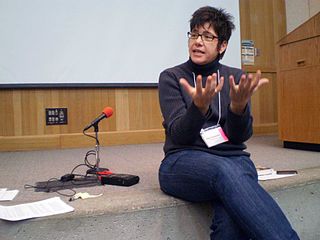A Quote by AJ Tracey
Some things you never really fully understand unless you are actually black and you experience how it feels when someone treats you differently based on your skin colour.
Quote Topics
Related Quotes
When I was a teenager, I was obsessed with black eyeliner all around the eye, but for someone with my kind of skin tone and hair colour, using brown is actually better than black. I've also learnt from makeup artists how to apply lipstick in the correct way: by starting with the Cupid's bow first and working your way around.
I think that is what you want to do as a cinemagoer - to experience something fully. Some things don't let you experience them fully. It may be your own preordained prejudice where you can't experience them fully. But when you come out of the cinema having felt, thought, and experienced your way through two hours, that is a really cool thing.
The Transportation Security Administration has probably converted more people to Islam than any religious order in the last 100 years. It doesn't matter how you choose to self-identify or even if your religiosity is private; when you get to the airport you know how you're going to be treated based on your name. Possibly also because of the colour of your skin and the colour of your passport.
Race doesn't mean what it used to in America anymore. It just doesn't. Obama's black, but he's not black the way people used to define that. Is black your experience or the color of your skin? My experience is as a Mexican immigrant, more so than someone like George Lopez. He's from California. But he'll be treated as an immigrant. I am an outsider. My abuelita, my grandmother, didn't speak English. My whole family on my dad's side is in Mexico. I won't ever be called that or treated that way, but it was my experience.
You think to yourself, “If one drink feels really good and two feels really, really good, a hundred ought to feel fantastic.” As sane people know, it doesn't work that way. A hundred drinks feels terrible. Bad things happen. But the addict keeps at it, thinking at some point it's going to get good again The point is to not feel what you're feeling. The problem is, you become someone you never thought you would become, and you have no idea how you got there.
People don't realize it hurts my feelings when someone looks at my hair or my eyes, and says, 'But you're not actually black. You're black, but you're not black black, because your eyes are green.' I'm like, 'What? No, no, I'm definitely black.' Even some of my closest friends have said that. It's been a bit touchy for me.
The prejudice many photographers have against colour photography comes from not thinking of colour as form. You can say things with colour that can't be said in black and white... Those who say that colour will eventually replace black and white are talking nonsense. The two do not compete with each other. They are different means to different ends.
While I might not have a specific experience that is fully American, there is still a knowledge, something that I logically understand as a black woman and a black woman who is existing in America and a black woman who is in the diaspora that are just known quantities that I think anyone can relate to who is black.



































